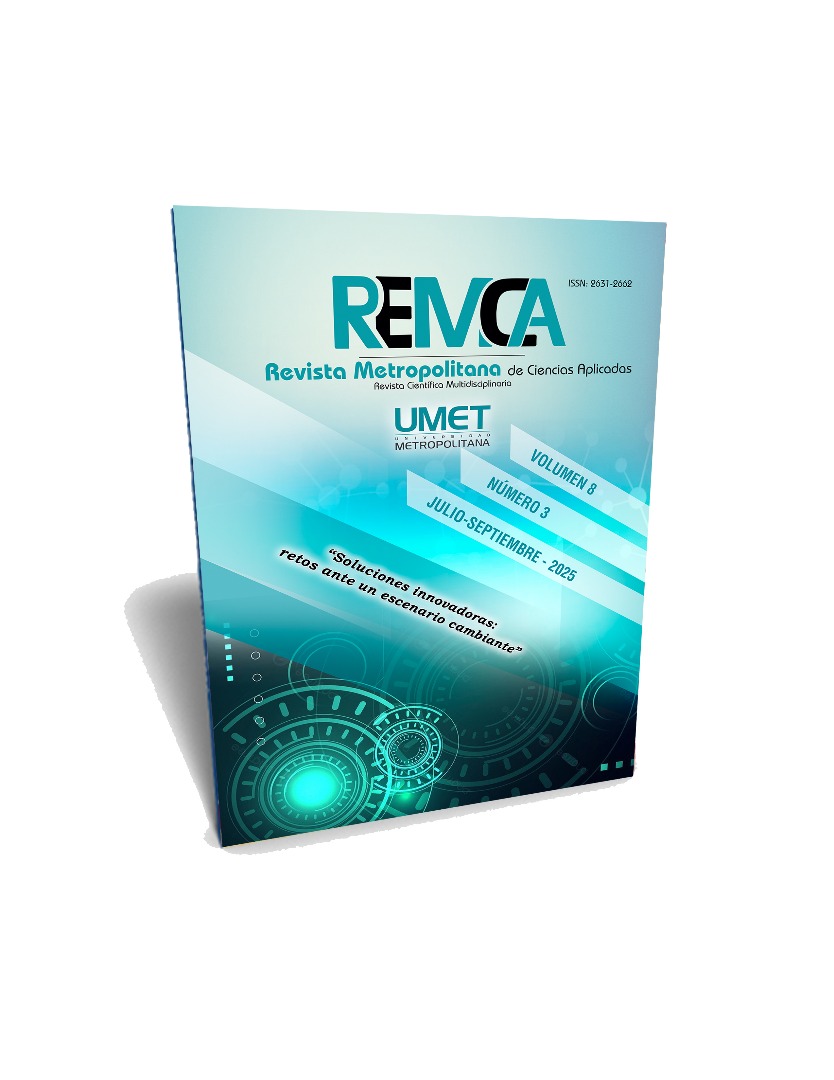Mediation: An alternative or a necessary legal requirement for financial institutions to recover portfolios?
DOI:
https://doi.org/10.62452/0z0zwm15Keywords:
Mediation, alternative, legal requirement, portfolio recovery, financial institutionsAbstract
This article proposes the regulatory inclusion of mediation in the enforcement procedure provided for in the COGEP (General Organic Code of Procedures) as an alternative means of conflict resolution, as a prerequisite to filing a lawsuit, in order to facilitate the effective collection by financial institutions of the amounts owed. To achieve this, a qualitative methodological approach is used, utilizing analytical-synthetic, exegetical, and inductive methods. The article proposes the regulatory inclusion of mediation in the enforcement procedure provided for in the General Organic Code of Procedures as an alternative means of conflict resolution, as a prerequisite to filing a lawsuit, in order to facilitate the effective collection by financial institutions of the amounts owed. The results indicate that mediation, by reducing time and costs, can be a viable and effective alternative for debt collection compared to traditional judicial methods. The inclusion of mediation as a pre-trial phase optimizes the portfolio recovery system in Ecuador, providing a more agile and less costly approach for financial institutions.
Downloads
References
cartera vencida en la Cooperativa de Ahorro y Crédito Indígena SAC-Pelileo, provincia de Tungurahua. (Trabajo de investigación). Universidad Técnica de Ambato.
Barmat, N., & Belucci, M. (2013). Casos y cosas de mediación. Editorial Brujas.
Carrillo Zurita, J. P. (2016). La mediación como solución de conflictos en la recuperación de cartera de tarjetas de crédito. (Tesis de pregrado). Universidad Técnica Particular de Loja.
Ecuador. Asamblea Nacional Constituyente. (2008). Constitución de la República del Ecuador. Registro Oficial 449. https://www.oas.org/juridico/pdfs/mesicic4_ecu_const.pdf
Ecuador. Asamblea Nacional. (2015). Código Orgánico General de Procesos (COGEP). Registro Oficial Suplemento 506. https://www.ces.gob.ec/lotaip/2021/Marzo/a2/C%C3%B3digo%20Org%C3%A1nico%20General%20de%20Procesos,%20COGEP.pdf
Ecuador. Congreso Nacional. (1997). Ley de Arbitraje y Mediación. Registro Oficial No. 417. https://www.funcionjudicial.gob.ec/pdf/Ley%20de%20Arbitraje%20y%20Mediaci%C3%B3n.pdf
Gorjón, F., & Chávez, R. (2019). Manual de mediación penal, civil, familiar y justicia restaurativa. Tirant lo Blanch.
Gorjón-Gómez, F., & Valdes-Espinosa, E. (2020). Análisis de la creatividad de la Mediación. Revista Ciencia Jurídica Y Política, 6(12), 14–27. https://doi.org/10.5377/rcijupo.v6i12.11170
Jequier-Lehuedé, E. (2016). La mediación como alternativa de solución de los conflictos empresariales en Chile: Razones y mecanismos para su regulación. Revista de derecho (Valdivia), 29(1), 91-118. https://dx.doi.org/10.4067/S0718-09502016000100005
Mera Gómez, M. J., & Jaramillo León, A. A. . (2022). Encubrimiento de la Capacidad Económica del Alimentante en Perjuicio de los Niños, Niñas y Adolescentes. Revista Imaginario Social, 5(2). http://revista-imaginariosocial.com/index.php/es/article/view/84
Peña Yáñez, M. Á. (2013). El proceso de mediación, capacidad y habilidades del mediador (ed.). Dykinson.
Quinatoa Pandi, C. A., & Jaramillo León, A. A. (2024). Eficacia de la mediación en la recuperación de carteras vencidas de CAC del segmento 1 en el Ecuador. Revista Imaginario Social, 7(2). https://doi.org/10.59155/is.v7i2.178
Rodríguez Mendoza, J. J., & Jaramillo León, A. A. (2023). El principio de voluntariedad de las actas de mediación parciales en materia de tránsito. Visionario Digital, 7(2), 6-21. https://doi.org/10.33262/visionariodigital.v7i2.2530
Suárez, M. (2003). Mediando en sistemas familiares. Paidós.
Urrutia Santillán, V. P., Jaramillo León, A. A. (2021). ¿Cultura de paz o cultura adversarial en el Distrito Judicial del cantón Loja? Sociedad & Tecnología, 4 (S2), 577–592. https://doi.org/10.51247/st.v4iS2.171
Zurita Acurio, C. (2023). La justicia alternativa como mecanismo para disminuir la carga procesal en el sistema judicial ecuatoriano. Pro Ciencias: Revista De Producción, Ciencias E Investigación, 7(47), 165–173. https://doi.org/10.29018/issn.2588-1000vol7iss47.2023pp165-173
Downloads
Published
Issue
Section
License
Copyright (c) 2025 Jhoselin Liseth Jiménez-Castelo, Jessica Irina Jara-Martínez, Yudith López-Soria, Holger Geovanny García-Segarra (Autor/a)

This work is licensed under a Creative Commons Attribution-NonCommercial-ShareAlike 4.0 International License.
Authors who publish in Revista Metropolitana de Ciencias Aplicadas (REMCA), agree to the following terms:
1. Copyright
Authors retain unrestricted copyright to their work. Authors grant the journal the right of first publication. To this end, they assign the journal non-exclusive exploitation rights (reproduction, distribution, public communication, and transformation). Authors may enter into additional agreements for the non-exclusive distribution of the version of the work published in the journal, provided that acknowledgment of its initial publication in this journal is given.
© The authors.
2. License
The articles are published in the journal under the Creative Commons Attribution-NonCommercial-ShareAlike 4.0 International License (CC BY-NC-SA 4.0). The terms can be found at: https://creativecommons.org/licenses/by-nc-sa/4.0/deed.en
This license allows:
- Sharing: Copying and redistributing the material in any medium or format.
- Adapting: Remixing, transforming, and building upon the material.
Under the following terms:
- Attribution: You must give appropriate credit, provide a link to the license, and indicate if any changes were made. You may do this in any reasonable manner, but not in any way that suggests the licensor endorses or sponsors your use.
- NonCommercial: You may not use the material for commercial purposes.
- ShareAlike: If you remix, transform, or build upon the material, you must distribute your creation under the same license as the original work.
There are no additional restrictions. You may not apply legal terms or technological measures that legally restrict others from doing anything the license permits.




